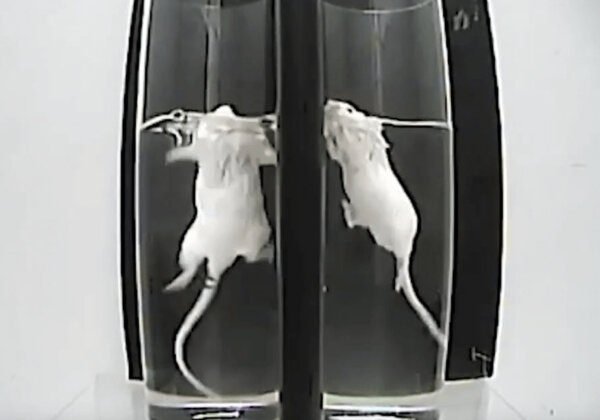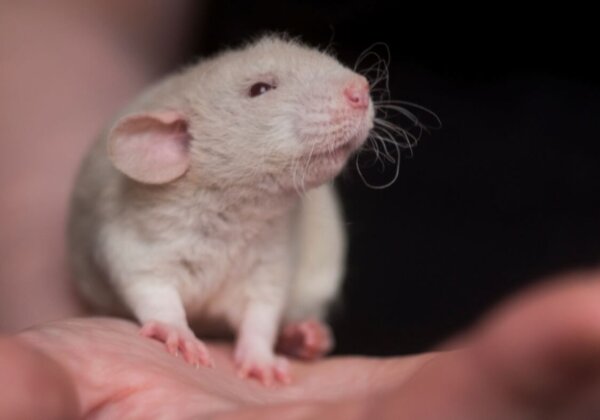Parliamentary Inquiry Recommends ‘Rapid’ Phase-Out of the Forced Swim Test!
A New South Wales parliamentary committee has tabled its report on the use of animals in medical research in what could be the beginning of the end for the forced swim test in the state.

The legislative committee tasked with reviewing the use of animals in experimentation has made 13 recommendations, including “rapidly phasing out” the forced swim test and smoking inhalation experiments, two targets of campaigns by PETA Australia and other PETA entities.
PETA Australia submitted evidence to the committee’s inquiry, including information about the Research Modernisation Deal, and we were pleased to see that the committee agrees with us that a strategy must be adopted for switching to animal-free research and that greater emphasis must be placed on funding such research.
What Is the Forced Swim Test?
The forced swim test – also known as the “despair test” – was supposed to provide insights into human depression, but most scientists now agree it’s not fit for this purpose. Small animals – usually mice or rats – are often dosed with drugs and dropped into cylinders of water. At first, they try to escape by attempting to climb up the sides of the beakers or even diving underwater in search of an exit. They paddle furiously, desperately trying to keep their heads above water, until eventually they start to float.
Some experimenters claim that animals who spend more time floating are depressed, but experts reason that floating is more likely to be an indication that animals are learning, conserving energy, and adapting to a new environment.
Forcing frantic animals to swim in an inescapable cylinder of water is both physically and psychologically abusive – not to mention completely irrelevant to human depression.
The Forced Swim Test Is Dead in the Water
Together with other PETA entities around the globe, we’ve successfully pushed for huge pharmaceutical companies, including Johnson & Johnson and Pfizer, to call time on this test.
We’re also working with Humane Research Australia to persuade Australian universities to ban it – and we’re making great progress, with commitments so far from Macquarie University, the University of South Australia, the University of Adelaide, and Griffith University (which were all cited in the committee’s report).
We’re now urging the New South Wales government to adopt and implement the committee’s recommendations as a starting point for building a forward-thinking, more humane research culture in the state.
Experiments on animals are holding back research, and the sooner they’re gone, the better off we’ll all be.







